Elvis Presley’s Manager
Colonel Parker – Hero or Villain?
Elvis’s manager Colonel Tom Parker was one of the most controversial people in rock’n’roll history – Colonel Parker Hero or Villain.
Elvis Presley’s relationship with his manager Colonel Tom Parker is one of the most contentious parts of the Elvis Presley story. Many Elvis fans see the Colonel as villain, who held Elvis back.
In this article I’ll be looking at how the Colonel probably elevated Elvis from just being famous, to becoming a legend!
PODCASTS
The story of Elvis and The Colonel can be heard in these two Podcasts…
Podcast 1
The Mop Tops & The King radio show
Author of the book Rock’n’Roll Unravelled, Derek Shelmerdine is a guest on the radio show Mop Tops and The King. In short, host Steve Chelmsford’s radio show is dedicated to the music and times of The Beatles and Elvis Presley.
This show airs in two parts, on the MTK network of nearly 100 radio stations worldwide.
weekly schedule – times and stations.
23 to 29 September and 30 September to 6 October 2022.
Podcast 2
In conversation on The Frank Carlyle Show
This was a live Facebook recording, 29 August 2022. Frank Carlyle is a well respected Liverpool historian.
THE STORY OF…
COLONEL PARKER – HERO OR VILLAIN
You decide… Hero or Villain?
SCOTTY MOORE July 1954
Shortly after Elvis’s first recording session at Sun Records in July 1954, Elvis signed his first management agreement, with Scotty Moore. At the first recording session for That’s All Right, Scotty Moore was the session guitarist. After this Scotty Moore, along with fellow session musician upright-bass player Bill Black, became Elvis’s regular backing band. With the addition of drummer DJ Fontana they regularly backed Elvis throughout the 1950s.
BOB NEAL August 1954
In the summer of 1954 Elvis played his first gig for promoter Bob Neal. Also based in Memphis, Tennessee, Bob Neal was an important part of the Memphis music scene. He promoted concerts in the area, owned a record store and had his own radio show.
Bob Neal certainly jump-started Elvis’s career. After his poor reception at the Grand Ole Opry, Elvis became a regular on the Louisiana Hayride radio show. By the end of 1954 Bob Neal was Elvis’s manager.
Bob Neal continued to be Elvis’s official manager for the next eighteen months.
In early 1955 Bob Neal introduced Colonel Tom Parker to Elvis.
COLONEL TOM PARKER – aka “The Colonel”
Colonel Parker Hero or Villain
Colonel Tom Parker was born Andreas Cornelis van Kuijk, in Breda, The Netherlands on 26 June 1909. He entered America illegally in the late-1920s. Consequently, he never had an American passport. This was probably one of the reasons why Elvis never toured outside North America.
In 1948 country singer and Governor of Louisiana, Jimmie Davis, bestowed Parker with the honorary title of Colonel. During Davis’s election campaign Tom Parker helped to promote him. As a thank you for helping him to become Governor, Parker was given the honorary title.
Tom Parker had a background in circuses and side shows. Most importantly, he was a showman. He referred to himself as a “snowman” because he could create something out of nothing.
Before Elvis he managed Hank Snow and Eddy Arnold.
“SPECIAL AGREEMENT” August 1955
Bob Neal was very Memphis-centic. He secured gigs for Elvis in the Southern States around their Memphis home base. The Colonel was introduced to Elvis in early 1955. Consequently, Elvis was one of the support acts on The Hank Snow tour. Following this, the Colonel found gigs for Elvis that took him further afield than he was playing with Bob Neal.
In August 1955 Elvis signed the “Special Agreement” management contract with Hank Snow Attractions, a joint venture with Snow and the Colonel. Bob Neal was still Elvis’s official manager but because of the Special Agreement, the Colonel would now play a greater part in Elvis’s development. As a result of this new power the Colonel set about finding Elvis a national record deal.
SUN RECORDS July 1954 to November 1955
Elvis released his first Sun single, That’s All Right, on 19 July 1954.
This fourth Sun single provided Elvis with his first national hit, albeit in the Country Music charts. Baby Lets Play House entered the Billboard Top-40 Country Hits chart on 16 July 1955. The B-side, I’m Left, You’re Right, She’s Gone, also gave him a Country hit. Both songs peaked at #5.
His fifth and final Sun single fared even better. I Forgot to Remember to Forget entered the Billboard Top-40 Country Hits on 17 September 1955 and spent five weeks at #1. Once again, the B-side also scored. Elvis’s cover of Jr Parker’s Mystery Train peaked at #10.
In short, Elvis spent 14 months at Sun Records. He released five singles, ten songs, four of which were Country Music hits. None made the Billboard R&B Top-40 or the mainstream Billboard Top-40 Hits charts.
Colonel Parker secured a record deal for Elvis and he signed to RCA on 21 November 1955. His first RCA single, Heartbreak Hotel entered the Billboard Top-40 Hits on 10 March 1956 and spent eight weeks at #1.
CONTEXT – ROCK’N’ROLL WORLD in 1955
It’s generally considered that rock’n’roll exploded onto an unsuspecting world with the movie Blackboard Jungle. Released on 25 March 1955, the movie had Bill Haley and His Comets playing (We’re Gonna) Rock Around the Clock behind the opening credits. The song entered the Billboard Top-40 on 14 May 1955 and stayed at #1 for 8 weeks.
Before this hit, Bill Haley had already scored four Billboard Top-20 successes. The first Bill Haley hit, Shake Rattle and Roll was back in August 1954.
Little Richard also hit the Hot-40 before Elvis. He entered the Billboard Top-40 Hits with Tutti-Frutti on 26 January 1956, three months before Elvis. It peaked at #17.
WHAT IF ELVIS HAD NEVER MET THE COLONEL?
Colonel Parker Hero or Villain
Following on from a look at Elvis at Sun and rock’n’roll becoming successful worldwide. It’s interesting to consider whether Elvis would have been as successful if he’d never met the Colonel.
Elvis joined Sun in July 1954. Shortly after that, Bob Neal became his manager. Elvis had his first national hit on the country music charts, on 16 July 1955. By then, Bill Haley and His Comets had already scored four Billboard Top-20 hits. Most importantly, Rock around the Clock, Haley’s fourth hit, was riding high in the mainstream charts at the time of Elvis’s first country music hit. Furthermore, Bill Haley’s song was the one which kick-started rock’n’roll around the world! That was a good nine months before Elvis’s breakthrough with Heartbreak Hotel.
If Elvis had stayed with Bob Neal the trajectory was in the direction of him becoming a country singer. Maybe, like Johnny Cash, he might well have had some cross-over hits.
1950s THE KING OF ROCK’N’ROLL March 1956 to March 1958
Towards the end of November 1955 Colonel Parker secured a record deal for Elvis with RCA. At the time Bob Neal was still Elvis’s official manager. That remained the case until early 1956.
1956 was a phenomenal year for Elvis. It started when his first RCA single Heartbreak Hotel stayed at #1 for 8 weeks.
In the 4 May 1956 edition of the Memphis newspaper the Press-Scimitar, journalist Robert Johnson described Elvis as “the fledgling King of Rock’n’Roll”.
Elvis went from strength to strength and the year ended in spectacular fashion. The Billboard Hot-100 for the week of 29 December 1956 showed Elvis holding 10 slots.
(For more information about the ten singles on this chart check out the companion blog – Elvis the Rock’n’Roll Years.)
During this period Elvis had 22 hit singles and EPs on the Billboard Top-40 Hits. His film career also started in 1956 with his first movie, Love Me Tender. Following this he made three more movies. At the time of shooting his fourth movie King Creole, Elvis was called up to serve in the US Army. Although, the authorities generously delayed his induction so that he could finish shooting the movie.
By the time he was conscripted into the US Army, Elvis Presley was well established as the King of Rock’n’Roll.
US ARMY March 1958 to March 1960
24 Mar 1958 – inducted into the US Army.
5 Mar 1960 – discharged from the US Army.
Despite Elvis being completely out of the music scene for two years, The Colonel and RCA kept Elvis in the public eye. During this Army period he scored 10 Billboard Top-40 hits, two of which were #1s.
ELVIS THE MOVIE STAR November 1960 to November 1969
Colonel Parker Hero or Villain
Elvis’s first movie after leaving the US Army was, naturally, GI Blues. This was his 5th movie and opened nationally on 23 November 1960.
Early on in the 1960s, Colonel Parker made the decision to only (mostly) release singles and albums from the movie soundtracks. He also decided that Elvis should not make any personal appearances.
Elvis gave his last concert performance in March 1961. A little over a year later, he released his last rock music album, Pot Luck with Elvis. Consequently, the next concert and non-soundtrack rock’n’roll album were both a good seven years away.
For the rest of the decade Elvis made two or three light-hearted, boy-meets-girl movies a year. He made a total of 31 movies as an actor. The end came in November 1969, with his 31st and final movie, Change of Habit. This is the one where Elvis fell in love with a nun.
All of Elvis’s movies made money.
In December 1968 Elvis returned to live concerts with his TV Special. This was followed by From Elvis in Memphis in June 1969, his first non-soundtrack album of new rock’n’roll songs since Pot Luck with Elvis in 1962. (He did release the album of gospel music, How Great Though Art in 1967. The Colonel did allow some non-rock’n’roll songs to slip into the movie releases.)
This is by far the most controversial period in Elvis’s history. Did the Colonel hold Elvis back, with his strategy of no personal appearances and only movie songs?
Well, if we look at the music backdrop to the 1960s…
EVERCHANGING 1960s MUSIC SCENE
The 1960s had more changes and music innovations than any other decade in rock’n’roll history. When Elvis came out of the US Army he was the King of Rock’n’Roll. However, during his time in the army the music scene had moved on and there was no longer a rock’n’roll scene to be King of.
Early 1960s USA – new music genres
The Golden Age of rock’n’roll had passed. Rock’n’Roll singers were now teen idols such as Fabian and Frankie Avalon.
When Buddy Holly tragically died in 1959, his Winter Dance Party tour continued.
It’s interesting to note that his replacement on the tour were teen idols, Fabian and Frankie Avalon.
New music genres emerged.
Soul music, particularly with record labels Motown and Atlantic.
Surf music emerged with Dick Dale, The Beach Boys, and Jan and Dean.
A host of new dance crazes emerged, with Chubby Checker finding fame with the twist and others.
Phil Spector introduced his wall of sound.
Bob Dylan led the way, as the folk revival music scene developed new protest singers.
Early 1960s UK – beat groups – leading to the British Invasion
In the late 1950s the British skiffle and rock’n’roll groups morphed into beat groups. The big difference was that the focus was now on the group and not just the singer. The Beatles, Rolling Stones, Dave Clark Five, Herman’s Hermits and various Merseybeat groups soon led the way for what became known as the “British Invasion”.
The British Invasion 1964 to 1966
After the Beatles phenomenal success on the Ed Sullivan Show on 9 February 1964, British groups dominated the American music scene for the next two years.
Rock Music emerged – spinning off yet more sub-genres 1965 to 1969
In the first half of the 1960s, the music scenes were completely different on both sides of the Atlantic. Around 1965 the two scenes converged, as rock music emerged. These new rock groups were much harder edged than the beat groups. Bands like the Jimi Hendrix Experience, Cream and The Doors brought a whole new sound to both sides of the Atlantic.
Very few groups from the first half of the 1960s found success in the second half of the decade. The ones that did, generally wrote their own material.
After that, in the latter half of the decade, more new musical innovations arrived with psychedelia and heavy metal.
COLONEL PARKER’S 1960s STRATEGY FOR ELVIS
Colonel Parker Hero or Villain
The Colonel’s strategy for Elvis was simple, no personal appearances and only soundtrack albums and singles. This meant…
If you wanted to see Elvis – you had to go to the cinema.
If you wanted to hear Elvis – you had to buy the music – from the movies.
This meant that – the movies generated the songs…
As a result – the songs sustained the movies.
If the singles continued to be hits – the Colonel had perpetual motion…
This strategy worked.
As a result, Elvis continued to have hit records across the 1960s. Furthermore, the movies all made money.
The Colonel became the Snowman again. He created something out of nothing.
What he created was THE ENVIRONMENT, where Elvis could sustain and build on his 1950s success.
Moreover, Elvis did not have to compete with the new music from The Beatles, Rolling Stones, Bob Dylan and the rest. Elvis was in a music-scene parallel universe.
This strategy also protected Elvis from the devastating effects of the British Invasion.
Furthermore, even if Elvis had been successful before and during the British Invasion, he would still have needed to reinvent himself yet again, when rock music completely changed the face of rock’n’roll. This time he’d be competing against the likes of Jimi Hendrix, The Cream, The Doors and a host of other bands who emerged in the mid/late 1960s.
1970s THE LAS VEGAS YEARS
At the end of the 1960s Elvis reinvented himself again.
Out went the Hollywood movie star, to be replaced by: Elvis – the ultimate Las Vegas cabaret act.
The Colonel’s 1960s movie strategy worked very effectively.
As a result, Elvis began the 1970s with 15 years of hit records.
His fan base had grown. This can be seen from the makeup of his multi-generational Las Vegas audiences.
Elvis was still regarded as the King of Rock’n’Roll.
DID THE COLONEL HOLD ELVIS BACK IN THE 1970s?
Colonel Parker Hero or Villain
It’s often said that the Colonel stopped Elvis touring outside America. Elvis wanted to do a world tour. The Colonel was an illegal immigrant, meaning that he did not have an American passport. He was also an inveterate gambler and because of this, the multitude of Las Vegas’ casinos would be very attractive.
Did this damage Elvis’s career?
In the 1960s and ‘70s, artists and bands made very little, if any, money from tours. During that era the money was made by selling records. The tour was generally to promote the latest album.
Elvis earned around $1 million (by today’s standard) a week for his Las Vegas residencies. The fans came to Vegas to see Elvis.
DID THE COLONEL RIP ELVIS OFF?
The Colonel’s 30 then 50% cut of Elvis’s earnings was unusually high. On the other hand, he negotiated very high fees for Elvis, unusually high. More than that, he continually re-negotiated better and better deals for Elvis. He kept pushing RCA and the movie companies to dig deeper into their pockets to retain access to the King of Rock’n’Roll. Moreover, Elvis was the Colonel’s only client.
The Colonel also created merchandising. He even made money out of people who didn’t like Elvis, with his I Hate Elvis badges.
OTHER POTENTIAL MANAGERS
If Elvis and the Colonel had parted company in the late 1950s, would he be better off? Other successful managers at the time included Albert Grossman and Allen Klein.
Albert Grossman managed, Janis Joplin, Bob Dylan and Peter Paul & Mary, amongst others.
Allen Klein famously managed The Beatles and The Rolling Stones but that didn’t end well!
IN CONCLUSION
Colonel Parker Hero or Villain
When Elvis entered the 1970s’ Vegas years he was in a league of his own. It’s probably fair to say that he was the most famous solo artist on the planet. The only other comparable act is The Beatles.
When Elvis died, his net-worth was estimated at around $25m, by today’s standards.
The Guinness Book of World Records lists Elvis as…
“Best Selling Solo Artist of All Time. 1 billion units sold”
Would Elvis have been better off without the Colonel? We’ll never know.
One last question?
How could the Elvis Presley, King of Rock’n’Roll legend, possibly be any bigger than it is today?
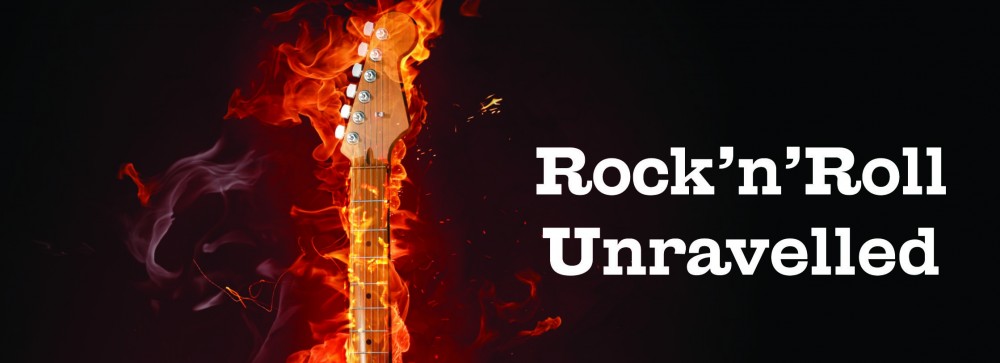
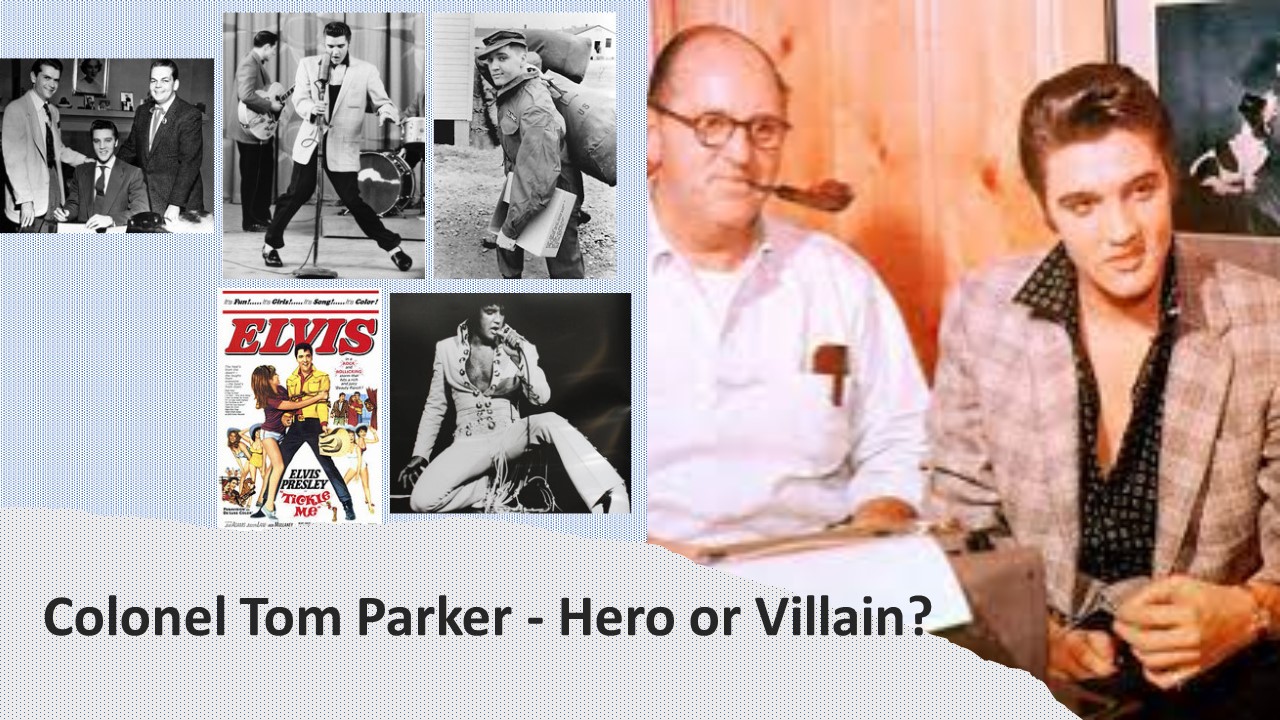
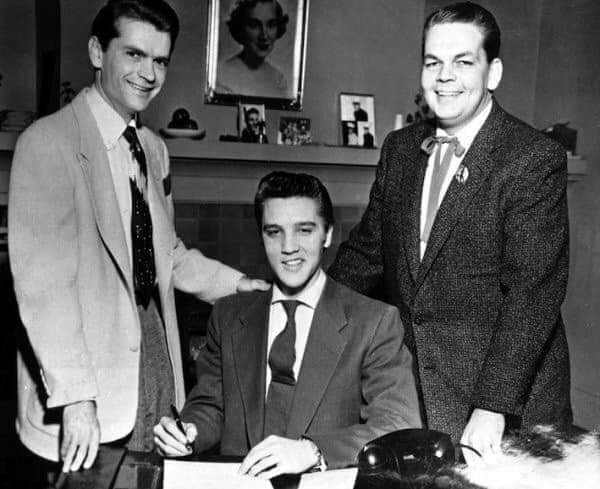
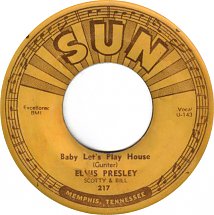
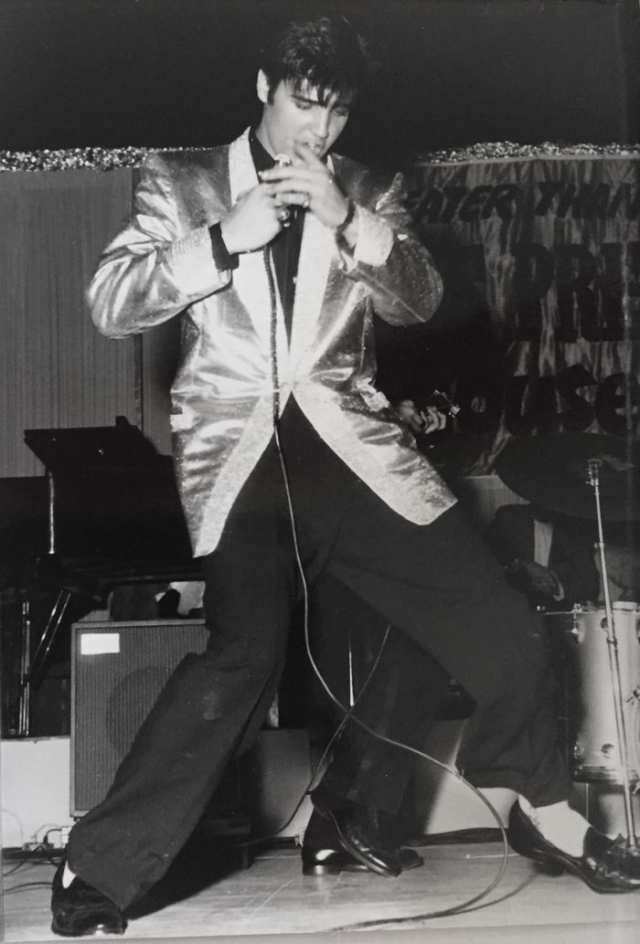
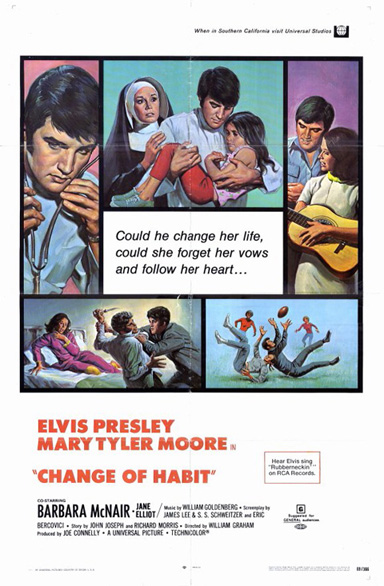
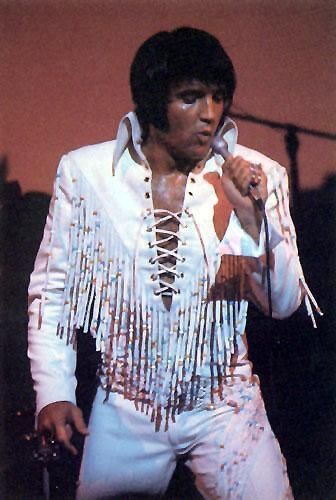
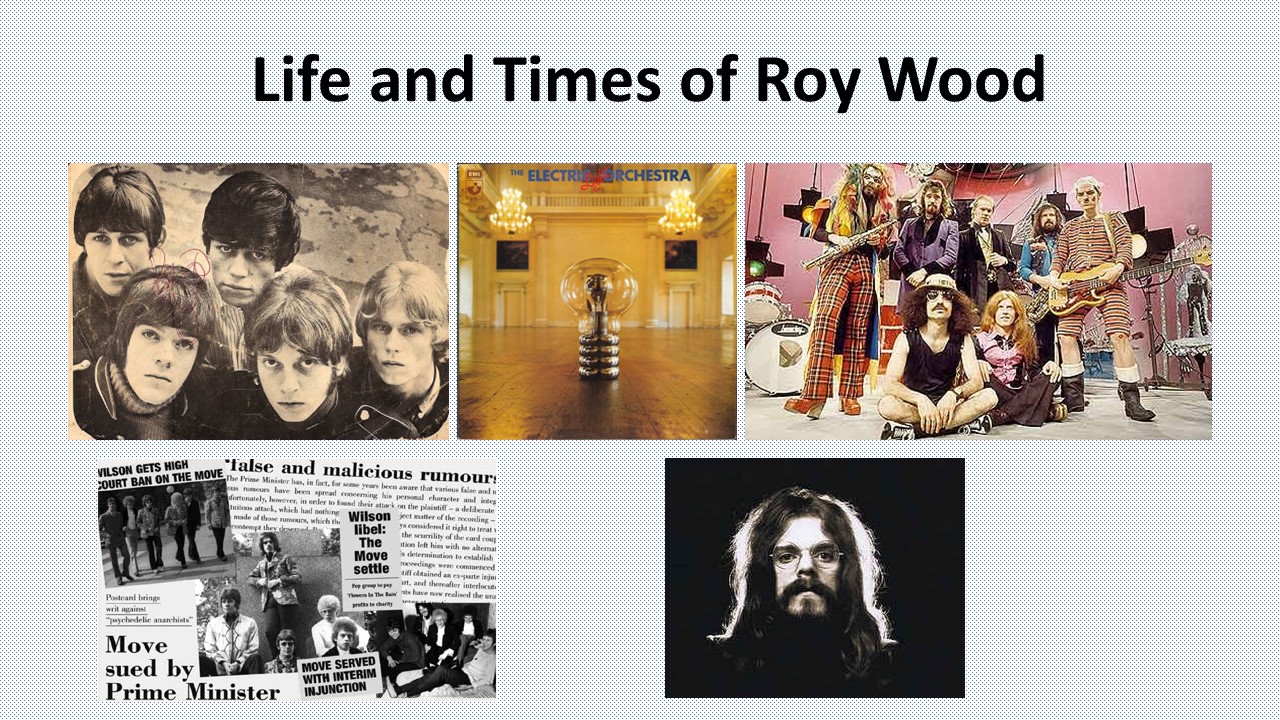
I am solidly in the camp that says the Col launched him into superstardom. Without him Elvis would not have had the meteoric rise he had. However, there was a point where the Col and Elvis should probably have parted company- probably around 1970, ‘71. Elvis wanted to do things as an artist that the the Col saw no monetary value in, and he didn’t recognize there was value In anything that wasn’t monetary .
So maybe the Col was both? Hero AND villain?